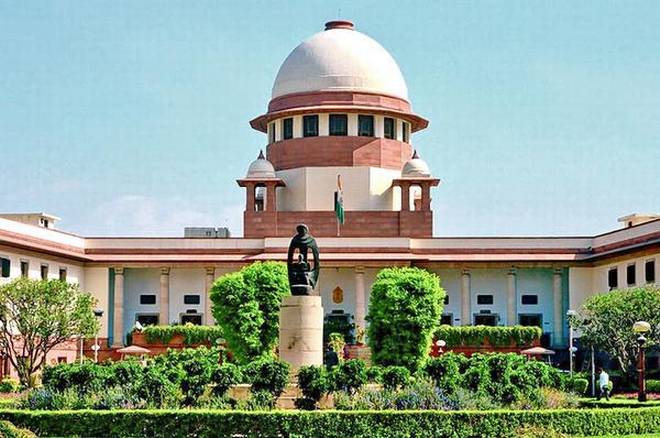The Supreme Court of India on Monday has dismissed an appeal filed by the Bihar State Electricity Board against the judgment of the High Court which held Electricity Board’s act of disconnection of electricity as arbitrary on the bills due by the consumer company.
Brief facts of the case are that the respondent company had entered into an agreement for supply of electricity with the appellant Board for contract demand of 1,000 KVA on 16th April 2004. Three disconnection noticeson account of default in payment of AMG (Annual Minimum Guarantee) as also energy charges were issued by the Board. The company made a representation for liquidating their dues on account of AMG in ten monthly instalments citing certain business-related difficulties. Part payment of the dues to the extent of Rs. 14,71,952/- was made.
Next disconnection notice under Section 56 of the Electricity Act, 2003 (the Act) was sent to the company for a sum of Rs. 33,38,572/- for non-payment of AMG as also on account of Delayed Payment Surcharge (DPS). Another bill was raised on 1st September 2006, the due date for which was 20th September 2006. The bill amount was Rs. 37,00,923/- and the bill heads were AMG, DPS as also energy charges. Supply of Electricity to the respondent company, however, was disconnected.
The company’s request for grant of instalments to liquidate their dues was ultimately accepted by the Board and to that effect an agreement was executed between Company and the Board for liquidation of the outstanding dues of Rs. 37,09,027/- in ten instalments. On payment of the first instalment, supply line of the company was energised. Another bill was sent to the company for Minimum Monthly Base charges, AMG charges and total amount demanded under this bill was for Rs. 88,389,528/-. The next notice under Section 56 of the Act was issued on 22.05.2007 as the company did not make payment of the bill.
The Company thereafter approached the Consumer Grievances Redressal Forum questioning legality of the notice. Their application was registered and initially the demand was stayed by the Forum.
The Single Judge of Patna High Court found the act of disconnection without considering the request for instalments was unwarranted. It was held that such default on the part of the company did not constitute “neglect to pay” as contemplated in Section 56 of the 2003 Act.This was held to be unjustified. The demands raised thereafter contrary to the order of the Forum constituted under Section 42(5) of the Act was also held to be illegal by the Single Judge.
Thereafter, Appeal Bench of Patna High Court, inter, alia, foundthe bill which included the AMG and DPS contrary to the order of the Forum being illegal, the Industry was under no obligation to pay the same. The subsequent disconnection automatically becomes illegal. Surprisingly, the officials of the Board persisted in defying the order of the Forum in the bill by again including AMG and DPS for the period of disconnection disallowed by the Forum and reiterating the subsequent illegal bill also for the period of illegal disconnection.
The issues which arose before the Supreme Court are as follows:-
- Whether the company could have invoked the Redressal Forum’s jurisdiction over the dispute pertaining to AMG and DPS including the question of disconnection in terms of Section 56 of the Act.
- Whether, after receiving a representation seeking instalment payment, supply to consumer could be disconnected without dealing with such representation.
- Whether AMG was payable by the company for the entire period during which supply to the consumer remain disconnected.
Acting upon the appeal, the division bench comprising of Justice Deepak Gupta & Justice Anirudhha Bose,observed that the respondent company fits the description provided under section 2(15) of the Electricity Act, 2003. A case was sought to be made out that since the company was a high-tension commercial consumer, they could not apply to the Forum. On this count, definition of consumer as specified in clause 2 (1) (g) of the Consumer Grievance Redressal Forum and Electricity Ombudsmen Regulation, 2006 was sought to be relied upon. But, we do not find any reason to denude the company of its locus to approach the forum. The object of use of electricity may be to produce items for sale, but use or consumption of electricity by them was for their own factory, said the bench.
On second issue the Court accepted the finding of the Division Bench of the High Court that the Board could not have had ignored the directive of a statutory forum and imported their own perception of what was legal to proceed against a consumer.
On third issue, the Court observed that the statutory Forum has come to a finding in dealing with certain circular issued by the Board. And as such the court declined to interfere at this stage with such finding so far the same related to applicability and interpretation of the said circular.
The Supreme Court held that both the courts below have held that the respondent company did not neglect to pay their dues, for which reason the supplier could have affected the harsher mode by disconnection supply.Once that plea for instalment payment was accepted and agreement was entered into for clearing the dues, it demonstrated willingness to pay on the part of the company of the dues in a manner acceptable to the appellant Board. Such plea of the company was accepted after keeping the matter pending for a long time. In such circumstances, in our opinion the High Court was right in giving its finding that the act of disconnection was arbitrary.
Thus, the Supreme Court while dismissing the appeal upheld the judgement of division bench of Patna High Court and the findings given therein.
-India Legal Bureau


